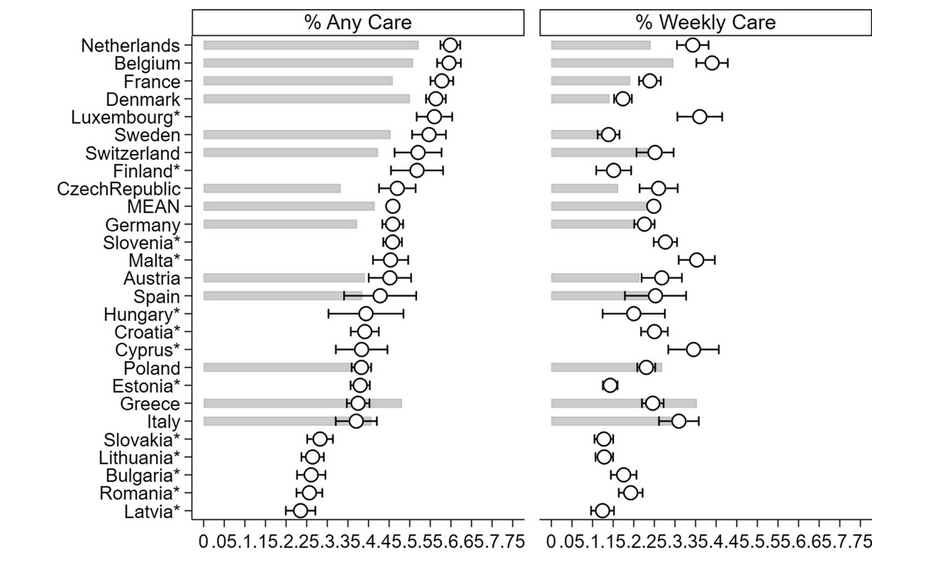
The likelihood of grandparents caring for grandchildren ranges from 24% in Latvia (followed by Romania, Bulgaria and Lithuania) to 60% in Belgium and the Netherlands (followed by France and Denmark), with an average of 46%, shows research. published in the European Journal of Aging. Significant growth is observed only in a few countries, such as the Czech Republic (from 33 to 47%) and France (from 46 to 58%). The exception is Greece, where we observe a significant decrease (from 48 to 38%).
The study examines how the proportion of European grandparents caring for children has changed over the past 15 years, and how this proportion differs by gender and education.
The analysis contains estimates of the prevalence and intensity of childcare by grandparents in 26 European countries, as well as their changes over time and in socio-demographically defined groups.

Overall, over the past 15 years, the prevalence and intensity of childcare by grandparents in Europe has increased slightly on average. But the differences between the states are significant (from 24 to 60%).
In general, grandmothers are more likely to care for children than grandfathers, while differences based on educational attainment are less evident. Central and South-Eastern Europe, which represents the bulk of the “new” countries in the analysis, shows patterns of childcare by grandparents very similar to those observed in Mediterranean countries.
This study examined the consequences of grandparental caregiving, from grandparents’ health to grandchildren’s cognitive outcomes.
In the debate about the relationship between family solidarity and the role of the state, some authors argue that generous states in terms of social spending weaken family solidarity, while others say that welfare services can stimulate intergenerational family support.
In the countries of Northern Europe, family members support each other more intensively from an economic and social point of view, but less often in the countries of Southern Europe.
This division reflects a context in which specialized and time-consuming tasks are carried out by public services and family members undertake support voluntarily rather than through obligation.
Demographic features of each country should also be taken into account.
In Italy, Greece or Spain, parents are more likely to be married, older and have only one child than in Northern or Central Europe. In addition, grandparents are much more likely to have a lower level of education in Mediterranean countries than in other European countries.
In the Mediterranean countries, as well as in Poland, an implicit family mentality prevails: the state does not have many alternatives for family care, which forces family members to intervene.
In the Scandinavian countries and in France, public services relieve families of many of their responsibilities. In addition, states are involved through policies to financially support families in maintaining their role as caregivers for other generations.
Coupled with the fact that there are part-time jobs, this policy reduces the need for childcare by grandparents, even if young mothers are working. Thus, grandparents can take care of their grandchildren only if they wish or in extreme cases.
Most of the Western European countries (Austria, Belgium, Germany and the Netherlands) and the Czech Republic have an intermediate and more heterogeneous structure, where the level of political support and the degree of participation of women in the labor market (part-time) are equal. average. In these countries, grandparents are actively involved in caring for their grandchildren and usually do so on a weekly basis as a supplement to public services.
Source: Hot News
Lori Barajas is an accomplished journalist, known for her insightful and thought-provoking writing on economy. She currently works as a writer at 247 news reel. With a passion for understanding the economy, Lori’s writing delves deep into the financial issues that matter most, providing readers with a unique perspective on current events.